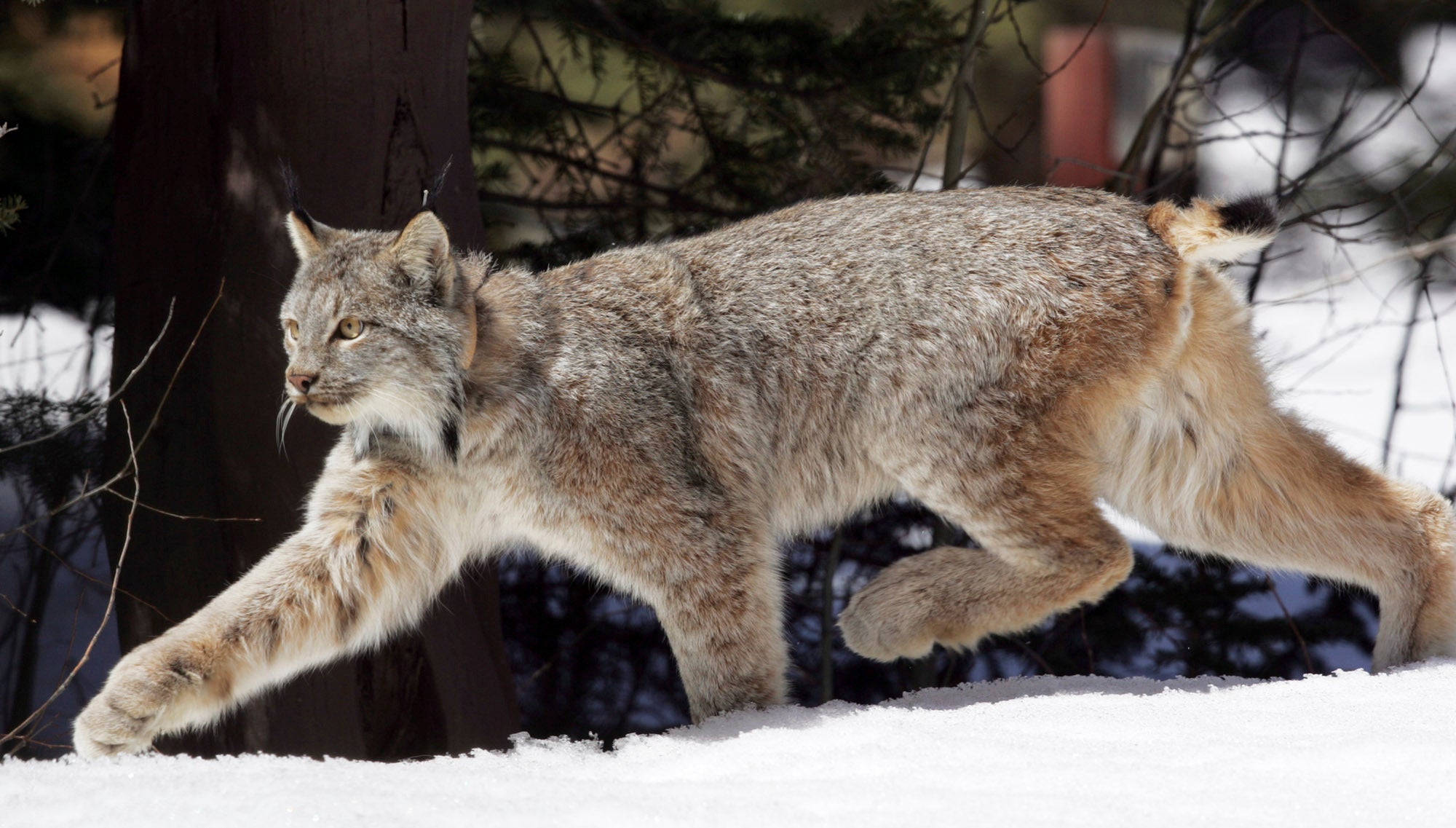US proposes plan to protect the snow-dependent Canada lynx before warming shrinks its habitat
U.S. officials are proposing a $31 million recovery plan for Canada lynx to help a snow-dependent wildcat species that scientists say could be wiped out in parts of the contiguous U.S. by the end of the century

U.S. officials proposed a $31 million recovery plan for Canada lynx on Friday in a bid to help the snow-dependent wildcat species that scientists say could be wiped out in parts of the contiguous U.S. by the end of the century.
The proposal marks a sharp turnaround from five years ago, when officials in Donald Trump’s presidency said lynx had recovered and no longer needed protection after their numbers had rebounded in some areas. President Joseph Biden’s administration in 2021 reached a legal settlement with environmental groups to retain threatened species protections for lynx that were first imposed in 2000.
Populations of the medium-sized wildcats in New Hampshire, Maine and Washington state are most at risk as habitat changes reduce populations of their primary food, snowshoe hares, U.S. Fish and Wildlife Service documents indicate.
But declines for lynx would be seen in boreal forests across the contiguous U.S. under even the most optimistic warming scenario that officials considered, the newly-released documents show. That includes lynx populations in the northern and southern Rocky Mountains and in the Midwest.
The recovery plan says protecting 95% of current lynx habitat in the lower 48 states in coming decades would help the species remain viable. And it suggests lynx could be moved into the Yellowstone region of Montana, Wyoming and Idaho — an area they don't currently occupy — as a potential climate change refuge.
There are roughly 1,100 lynx in the contiguous U.S., spread across five populations with the largest concentrations in the northeastern U.S. and northern Rockies. Most areas suitable for lynx are in Alaska and Canada.
Those numbers are expected to plummet in some areas, and the proposal would aim for a minimum contiguous U.S. population of a combined 875 lynx over a 20-year period across the five populations, including 400 in the northeast and 200 in the northern Rockies, according to the proposal.
The U.S. Fish and Wildlife Service faces a November 2024 deadline to draft a related plan to protect land where lynx are found. That came out of a legal settlement with two environmental groups — Wild Earth Guardians and Wilderness Workshop.
U.S. government biologists first predicted in 2016 that some lynx populations could disappear by 2100.
However, under Trump officials shortened their time span for considering climate change threats, from 2100 to 2050, because of what they said were uncertainties in long-term climate models. A government assessment based on that shortened time span concluded lynx populations had increased versus historical levels in parts of Colorado and Maine.
The proposed recovery plan comes two days after the Biden administration announced protections for another snow-dependent species — the North American wolverine. That came in response to scientists’ warnings that climate change will likely melt away the wolverines’ mountain retreats and push them toward extinction.
Bookmark popover
Removed from bookmarks